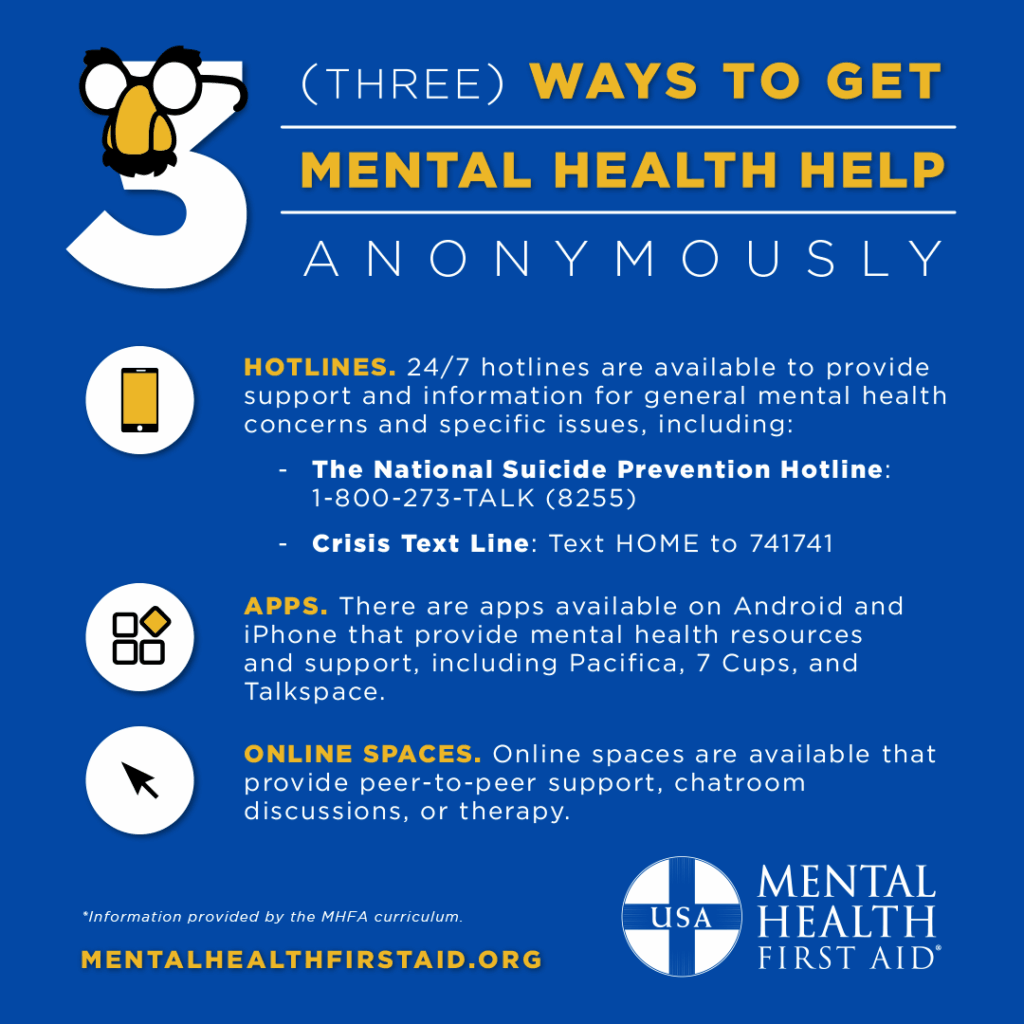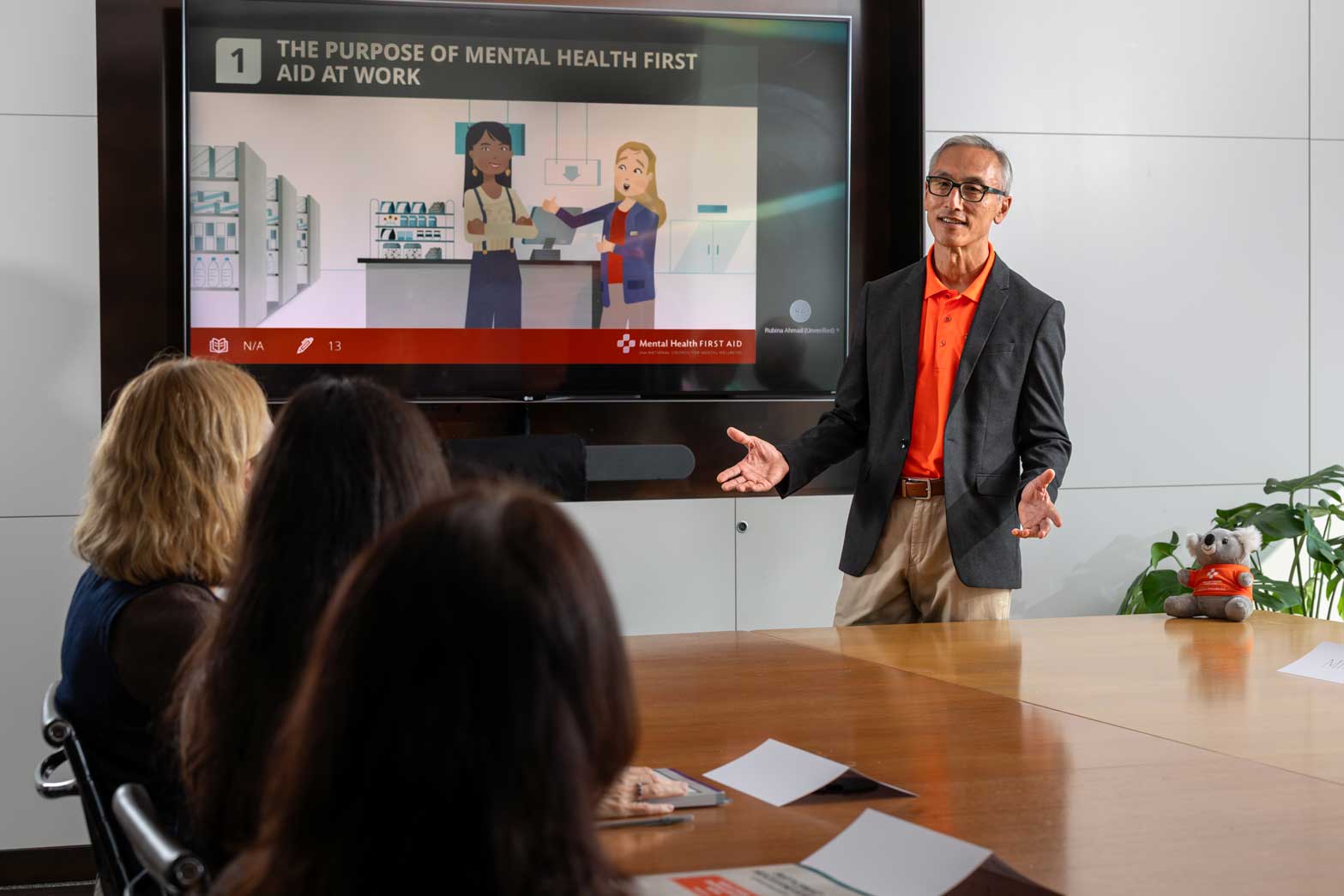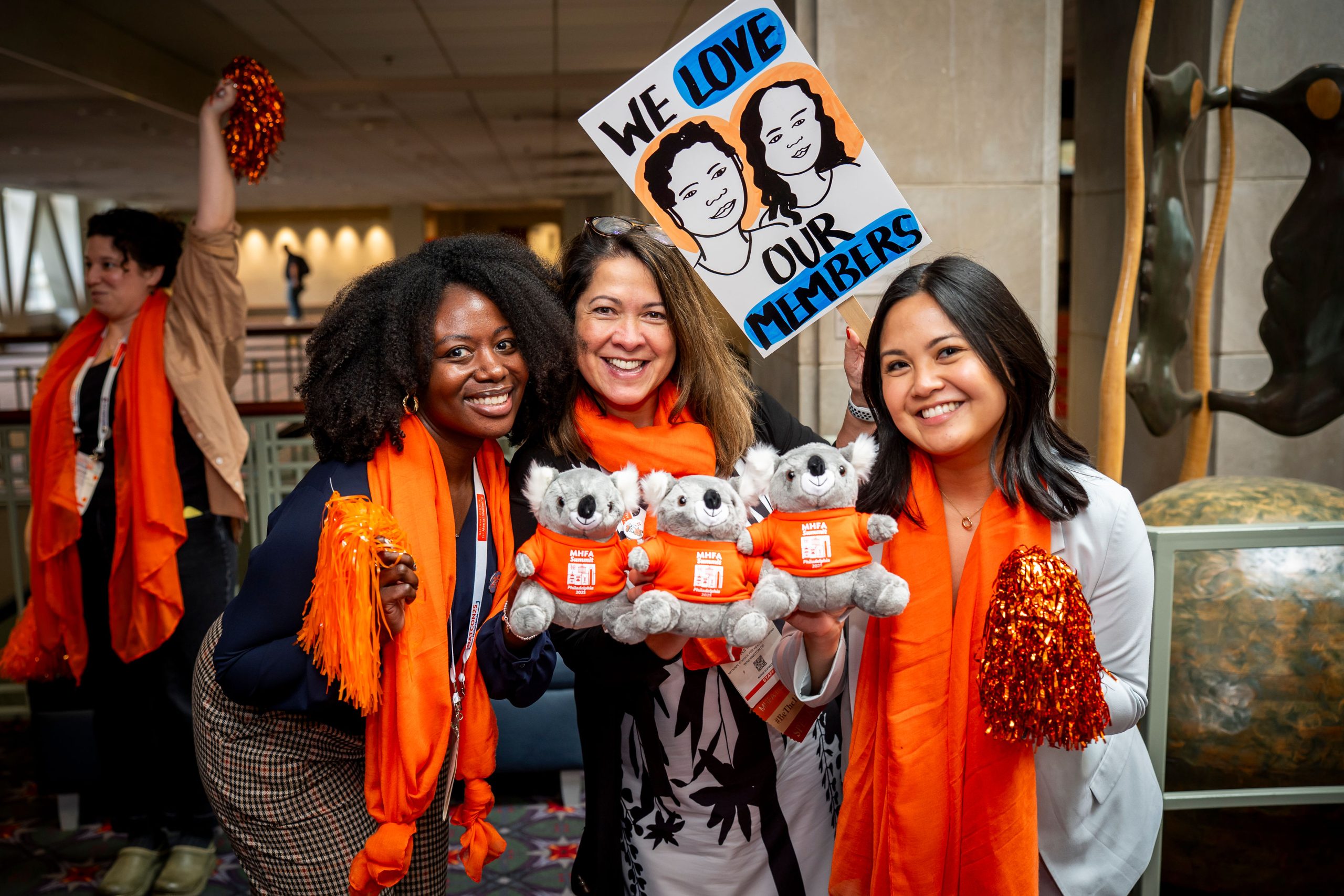If you or someone you know is considering suicide, call 9-1-1 or the National Suicide Prevention Lifeline at 1-800-273-TALK (8255).
In the United States, almost half of adults will experience a mental illness during their lifetime. Of the people who had a mental illness in the past year, only 41 percent received mental health services to address them.
According to the National Alliance on Mental Illness, there are often “long delays – sometimes decades – between the first appearance of symptoms and when people get help.” There can be several reasons, including access to resources, cost and the stigma associated with mental health problems.
Despite living in a time where people are more open about their thoughts and feelings, people are still often ashamed to discuss mental health concerns and might be hesitant to seek treatment and support because of what others will think. But treatment and support are still needed.
As a loved one or friend of someone who may be struggling, your role is to provide support and resources when possible. If they aren’t ready to seek help in person, that’s okay. You can share other resources and #BeTheDifference today.
These are just a few resources to reach out for mental health support anonymously.
- Hotlines. There are hotlines that can help you with general mental health concerns and with specific problems, like abuse or suicide. The Department of Health and Human Services Office on Women’s Health provides a list of available hotlines. A few that are available 24/7 include:
The Crisis Call Center: 775-784-8090
The National Suicide Prevention Hotline: 1-800-273-TALK (8255)
The National Domestic Violence Hotline: 1-800-799-SAFE (7233)
Crisis Text Line: Text HOME to 741741
- Apps. If you’re not comfortable talking to someone on the phone about your concerns, you can get information, resources and support through an app. A few apps, available on Android and iPhone, that focus on improving mental health include:
- Pacifica: Audio lessons and activities help you manage stress and depression, resources using methods like cognitive behavioral therapy (CBT) and an online community for support.
- 7 Cups: More than 160,000 trained listeners and licensed therapists are available to provide online therapy or emotional support.
- Talkspace: Connect to affordable and convenient resources that will help you understand your symptoms.




